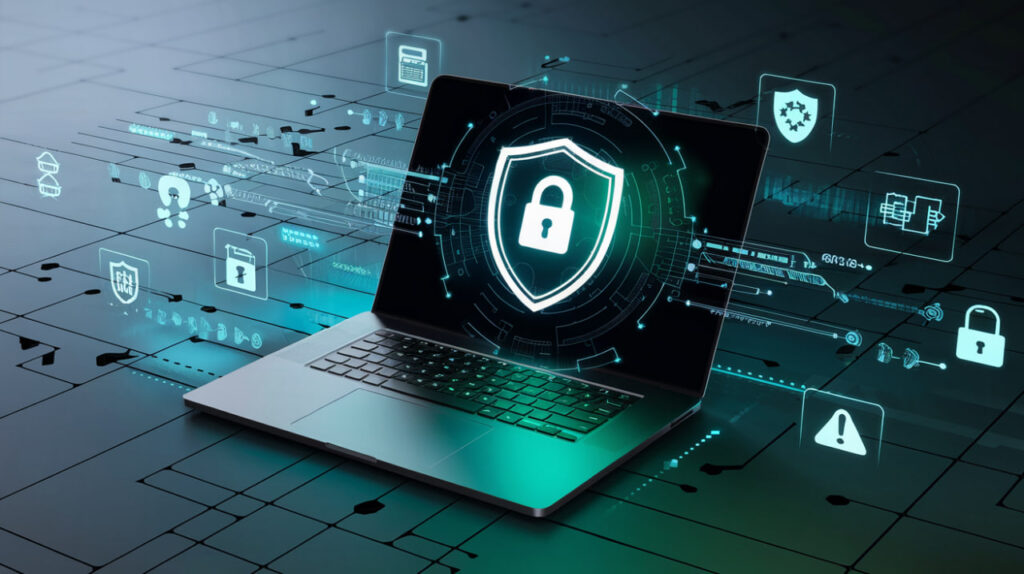In today’s digital age, protecting your online privacy is more crucial than ever. Cybercriminals are constantly evolving their tactics, making it essential for individuals and businesses alike to stay vigilant. This guide will walk you through the top cybersecurity practices to safeguard your online privacy and keep your sensitive information secure.
Table of Contents
1. Use Strong, Unique Passwords
The foundation of online security starts with robust password practices.
Key practices:
- Use a combination of uppercase and lowercase letters, numbers, and symbols
- Make passwords at least 12 characters long
- Use a unique password for each account
- Consider using a password manager like LastPass or 1Password
Pro tip: Enable two-factor authentication (2FA) wherever possible for an extra layer of security.
2. Keep Software and Systems Updated
Outdated software can be a gateway for cybercriminals to exploit vulnerabilities.
Key practices:
- Enable automatic updates for your operating system
- Regularly update all software and apps
- Pay special attention to security software updates
Resource: US Cybersecurity & Infrastructure Security Agency (CISA) on Software Updates
3. Use a Virtual Private Network (VPN)
A VPN encrypts your internet connection, making it harder for hackers to intercept your data.
Key benefits:
- Masks your IP address
- Encrypts your internet traffic
- Allows safe use of public Wi-Fi
Recommended VPNs:
4. Be Cautious with Email and Phishing Scams
Phishing remains one of the most common cyber threats.
Key practices:
- Don’t click on links or download attachments from unknown sources
- Be wary of emails asking for personal information
- Verify the sender’s email address
- Use email filtering and anti-spam tools
Learn more: Federal Trade Commission’s Phishing Guide
5. Secure Your Home Network
Your home network can be a weak point in your cybersecurity defenses.
Key practices:
- Change default router passwords
- Use WPA3 encryption for Wi-Fi
- Regularly update router firmware
- Consider setting up a guest network for visitors
Resource: US Federal Communications Commission’s Wi-Fi Security Tips
6. Use Multi-Factor Authentication (MFA)
MFA adds an extra layer of security beyond just a password.
Key benefits:
- Significantly reduces the risk of account compromise
- Often uses a combination of something you know (password) and something you have (phone)
- Can include biometric factors like fingerprints or facial recognition
Learn more: National Institute of Standards and Technology (NIST) on MFA
7. Be Mindful of Social Media Sharing
Oversharing on social media can provide cybercriminals with valuable information.
Key practices:
- Review and adjust privacy settings regularly
- Be cautious about sharing personal information
- Avoid posting about your current location or travel plans
- Be wary of quizzes or games that ask for personal details
Resource: StaySafeOnline’s Social Media Privacy Tips
8. Regularly Back Up Your Data
In case of a cyber attack or device failure, having backups ensures you don’t lose important information.
Key practices:
- Use the 3-2-1 backup rule: 3 copies, 2 different media types, 1 off-site
- Encrypt your backups
- Regularly test your backups to ensure they work
Learn more: US Cybersecurity & Infrastructure Security Agency (CISA) on Data Backup
9. Use Encryption for Sensitive Data
Encryption makes your data unreadable to unauthorized parties.
Key areas to encrypt:
- Emails containing sensitive information
- Files stored on your devices
- Cloud storage
- External hard drives
Resource: Electronic Frontier Foundation’s Encryption Guide
10. Stay Informed About Current Threats
Cybersecurity is an ever-evolving field, and staying informed is crucial.
Key practices:
- Follow reputable cybersecurity news sources
- Attend webinars or online courses on cybersecurity
- Participate in cybersecurity awareness training at work
Recommended resource: National Cyber Awareness System
Conclusion
Implementing these cybersecurity practices will significantly enhance your online privacy protection. Remember, cybersecurity is not a one-time task but an ongoing process. Regularly review and update your security measures to stay ahead of evolving threats.
While it may seem overwhelming at first, incorporating these practices into your daily routine will become second nature over time. The peace of mind that comes with knowing your online presence is secure is well worth the effort.
What cybersecurity practices do you find most effective? Share your experiences and tips in the comments below!
Pro Tip: Consider using a cybersecurity assessment tool like Cyber Hygiene Assessment provided by CISA to evaluate your current security posture and identify areas for improvement.
Stay safe online!
Also read: Best Productivity Apps for Remote Workers in 2024
